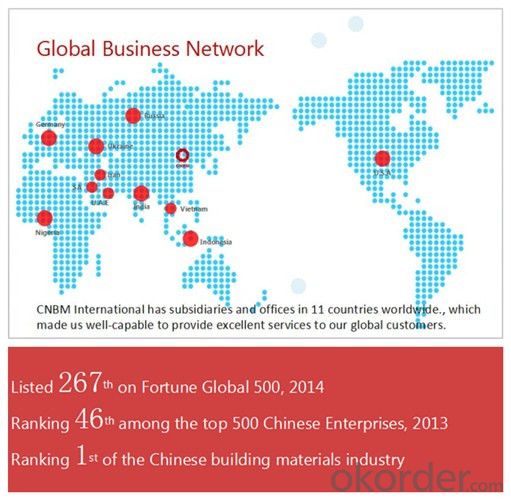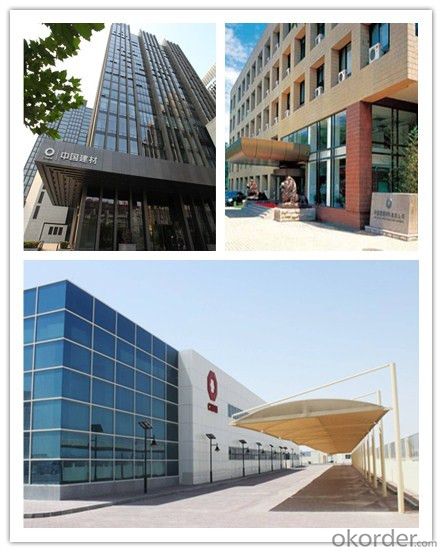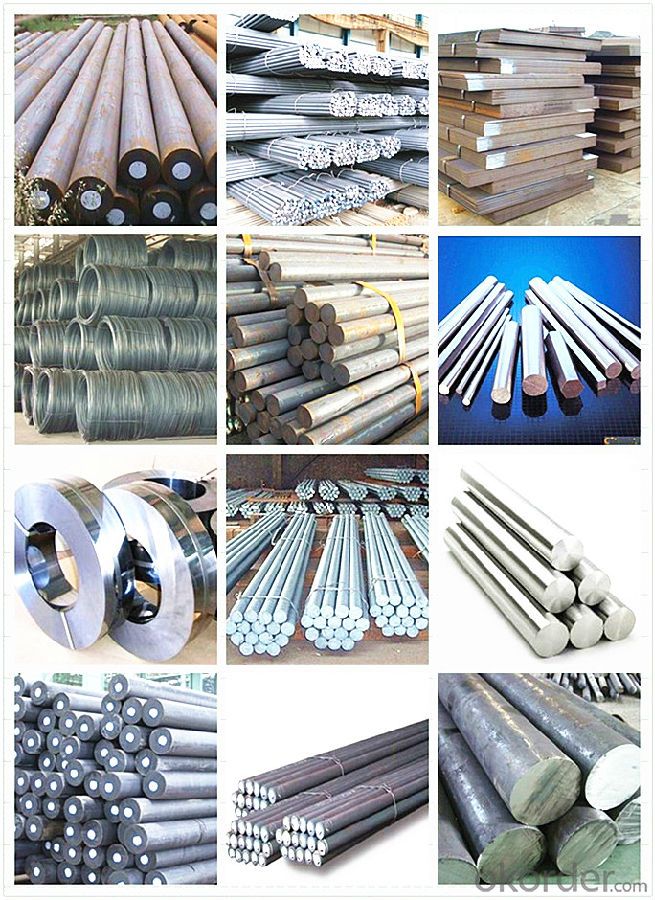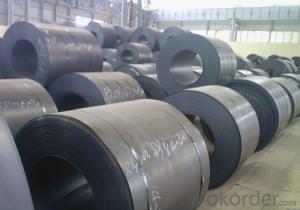Grade ASTM SS255-SS550 Galvanized Steel Coil
- Loading Port:
- Tianjin
- Payment Terms:
- TT OR LC
- Min Order Qty:
- 3 m.t.
- Supply Capability:
- 10000 m.t./month
OKorder Service Pledge
OKorder Financial Service
You Might Also Like
Item specifice
Grade ASTM SS255-SS550 Galvanized Steel Coil
Specification of Grade ASTM SS255-SS550 Galvanized Steel Coil
1. Galvanized Steel Coil
(1) Width: 600-1570mm
(2) Thickness: 0.13-5.0mm
(3) Grade: JIS G3302-SGCC-SGC570, SGCH (full hard-G550), SGHC-SGH540
EN10346-DX51D+Z, DX53D+Z, S250GD-S550GD
ASTM A653-CS-B, SS255-SS550
(4) Zinc Coating: Z40g/m2~Z500g/m2 (both side total coating thickness)
2. Galvalume Steel Coil
(1) Width: 600~1500mm
(2) Thickness: 0.15~2.30mm
(3) Grade: JIS G3321-SGLCC, SGLC400-570, (G550)
EN10346-DX51D+AZ, DX53D+AZ, S250-S550
ASTM A792M CS-B, SS255-SS550
(4) AZ Coating: AZ50~AZ185g/m2
3. Prepainted Galvanized Steel Coil (PPGI)
(1) Width: 600~1250mm
(2) Thickness: 0.19~1.50mm
(3) Grade: JIS G3312-CGCC, CGC340-570, (G550)
ASTM A755M CS-B, SS255-SS550
(4) Zinc Coating: Z40g/m2~Z500g/m2 (both side total coating thickness)
4. Prepainted Galvanized Steel Coil (PPGL)
(1) Width: 600~1250mm
(2) Thickness: 0.20~1.50mm
(3) Grade: JIS G3322-CGLCC, CGLC340-570, (G550)
ASTM A755M CS-B, SS255-SS550
(4) AZ Coating: AZ50~AZ185g/m2 (both side total coating thickness)
5. Cold Rolled Steel Coil (Soft) (for further information, pls click the product name)
(1) Width: 600~1570mm
(2) Thickness: 0.13~2.50mm
(3) Grade: JIS G3141-SPCC-SD, SPCD-SD, SPEC-SD
JIS G3135-SPFC 340/390/440
EN10130-DC01, DC03, DC04
SAE1006, SAE1008
ASTM A424-TypeⅡ
6. Cold Rolled Steel Coil (Full Hard) (for further information, pls click the product name)
(1) Width: 600~1570mm
(2) Thickness: 0.13~2.50mm
(3) Grade: JIS G3141-SPCC-1B, SPCC-1D
7. Hot Rolled Steel Coil
(1) Width: 1000~1524mm
(2) Thickness: 1.20~16.5mm, other thickness can be negotiation
(3) Grade: JIS G3101-SS400, JIS G3132-SPHT1/2/3, ASTM A36, Q195, Q235 etc.
Company Introduction of the Grade ASTM SS255-SS550 Galvanized Steel Coil
CNBM International Corporation is the most import and export platform of CNBM group(China National Building Material Group Corporation) ,which is a state-owned enterprise, ranked in 270th of Fortune Global 500 in 2015.
With its advantages, CNBM International are mainly concentrate on Cement, Glass, Iron and Steel, Ceramics industries and devotes herself for supplying high quality series of refractories as well as technical consultancies and logistics solution.


Packaging & Delivery of the Grade ASTM SS255-SS550 Galvanized Steel Coil
Packaging Detail | Sea worthy packing /as per customer's packing instruction |
Delivery Detail | 15 ~ 40 days after receiving the deposit |
Products Show:

FAQ:
Are you a trading company or manufacturer? | Manufacturer |
What’s the MOQ? | 3 metric ton |
What’s your delivery time? | 15-35 days after downpayment received |
Do you Accept OEM service? | Yes |
what’s your delivery terms? | FOB/CFR/CIF |
What's the Payment Terms? | 30% as deposit,70% before shipment by T/T |
Western Union acceptable for small amount. | |
L/C acceptable for large amount. | |
Scrow ,Paybal,Alipay are also ok | |
Why choose us? | Chose happens because of quality, then price, We can give you both. Additionally, we can also offer professional products inquiry, products knowledge train (for agents), smooth goods delivery, excellent customer solution proposals. |
What's your available port of Shipment? | Main Port, China |
What’s your featured services? | Our service formula: good quality+ good price+ good service=customer's trust
|
Where are your Market? | Covering more than 160 countries in the world |
- Q:How does special steel perform in welding applications?
- Special steel, also known as alloy steel, performs exceptionally well in welding applications. Its unique composition, which includes various alloying elements such as manganese, chromium, and nickel, enhances its weldability and overall performance. The addition of these alloying elements significantly improves the strength, hardness, and corrosion resistance of the steel, making it highly suitable for welding applications. Special steel possesses excellent weldability, allowing for easy fusion and formation of strong and durable weld joints. Furthermore, the alloying elements in special steel also contribute to its heat resistance, making it capable of withstanding high temperatures during the welding process without losing its structural integrity. This property is particularly crucial in applications where welding involves high heat levels or prolonged exposure to extreme temperatures. Moreover, special steel exhibits good ductility and toughness, enabling it to withstand the stresses and strains associated with welding. It can effectively absorb and disperse heat during the welding process, minimizing the risk of distortion or cracking in the welded joints. In addition to its mechanical properties, special steel also offers excellent resistance to corrosion and oxidation. This makes it highly suitable for welding applications in environments where exposure to moisture, chemicals, or harsh weather conditions is a concern. The corrosion resistance of special steel ensures that the welded joints maintain their strength and integrity over time, even in challenging environmental conditions. Overall, the performance of special steel in welding applications is outstanding, owing to its excellent weldability, strength, heat resistance, and corrosion resistance. Its unique composition and properties make it a preferred choice for a wide range of welding projects, including structural fabrication, pipeline construction, automotive manufacturing, and many more.
- Q:Can special steel be used in the cement manufacturing industry?
- Yes, special steel can be used in the cement manufacturing industry. Special steel, such as heat-resistant and wear-resistant steel, can be utilized in various components and machinery used in cement manufacturing processes. These steels are designed to withstand high temperatures, abrasion, and corrosion, making them suitable for applications in kilns, crushers, mills, and other equipment involved in cement production.
- Q:What is the cost of special steel compared to other materials?
- The price of special steel can vary depending on various factors when compared to other materials. Special steel, also known as alloy steel or tool steel, is generally more expensive than regular carbon steel due to its superior properties and composition. Its strength, durability, and resistance to wear and corrosion make it ideal for specialized applications in industries like automotive, aerospace, and construction. In comparison to non-ferrous metals like aluminum or copper, special steel often has a lower cost. However, it is important to note that different types of special steel can have different price ranges. For example, stainless steel, which contains chromium and other elements for better corrosion resistance, tends to be pricier than carbon steel. When comparing the cost of special steel to materials like plastics or composites, it is crucial to assess the specific project requirements. While these alternatives may have lower initial costs, they may not possess the same level of strength, heat resistance, or durability as special steel. Therefore, the long-term benefits and savings offered by special steel, such as reduced maintenance, longer lifespan, and improved performance, should also be considered. Ultimately, the price of special steel compared to other materials is influenced by factors such as the type and grade of steel, market demand, quantity needed, and any additional processing or finishing required. Consulting with suppliers, considering the specific application requirements, and conducting a comprehensive cost-benefit analysis will help determine the most suitable and cost-effective material choice for a particular project.
- Q:What are the main factors affecting the formability of special steel?
- The main factors affecting the formability of special steel include the composition of the steel, its microstructure, temperature, strain rate, and the presence of impurities or defects. These factors influence the ability of the steel to deform without cracking or fracturing during the forming process. Additionally, the mechanical properties, such as the yield strength and ductility, also play a significant role in determining the formability of special steel.
- Q:Can special steel be machined easily?
- No, special steel is generally not easy to machine due to its higher hardness and strength compared to regular steel.
- Q:How does special steel contribute to reducing product costs?
- Special steel contributes to reducing product costs in several ways. Firstly, special steel is known for its high strength and durability, which allows manufacturers to design and produce products that have a longer lifespan. This reduces the need for frequent replacements or repairs, thus saving costs in the long run. Additionally, special steel can be customized to meet specific requirements, allowing for the production of lighter and more efficient products. This can lead to savings in terms of raw material usage, transportation costs, and energy consumption. Moreover, special steel often has excellent corrosion resistance, reducing the need for additional protective coatings or maintenance, which can also result in cost savings. Overall, the utilization of special steel in manufacturing processes helps optimize product performance, longevity, and efficiency, thereby contributing to reducing product costs.
- Q:What are the challenges in recycling special steel?
- Recycling special steel poses several challenges due to its unique composition and properties. Firstly, special steel is often alloyed with various elements to enhance its strength, durability, and corrosion resistance. These alloys can make the recycling process more difficult and complex compared to recycling common steel. One of the main challenges is the separation of special steel from other metals during the recycling process. Special steel may contain rare and valuable elements such as nickel, chromium, and molybdenum, which are essential for its unique properties. Separating these elements from other metals requires advanced techniques and specialized equipment, increasing the complexity and cost of recycling. Another challenge is the presence of impurities in special steel. These impurities can be introduced during the manufacturing process or through contamination during use. Removing these impurities is crucial to ensure the recycled steel meets the required specifications for its intended applications. However, the high melting point and resistance to purification of some impurities may complicate the recycling process. Furthermore, the physical characteristics of special steel, such as its high hardness and toughness, can make it challenging to handle and process during recycling. Special steel often requires more energy-intensive methods, such as shredding or melting at higher temperatures, which can increase the overall cost and environmental impact of the recycling process. Moreover, the economic viability of recycling special steel can be a challenge. The market demand for special steel may fluctuate, making it difficult for recyclers to ensure a consistent and profitable supply. Additionally, the costs associated with the collection, transportation, sorting, and processing of special steel can be higher compared to common steel, further impacting the economic feasibility of recycling. In conclusion, the challenges in recycling special steel primarily stem from its complex composition, the need for separation from other metals, the presence of impurities, the physical characteristics of the material, and the economic viability of the recycling process. Addressing these challenges requires innovative technologies, efficient separation methods, and a sustainable market demand for recycled special steel.
- Q:What are the different methods of surface finishing for special steel?
- There are several different methods of surface finishing for special steel, each offering unique benefits and achieving specific aesthetic or functional requirements. Some of the most commonly used methods include: 1. Electroplating: This process involves depositing a layer of metal onto the special steel surface through an electrochemical reaction. It provides enhanced corrosion resistance, improved appearance, and can also offer increased hardness or wear resistance. 2. Passivation: Passivation is a chemical treatment that removes surface contaminants and forms a thin oxide layer on the special steel. This process enhances corrosion resistance by preventing the formation of rust or other oxidation products. 3. Polishing: Polishing is a mechanical process that involves using abrasive materials to remove a thin layer of the steel surface, resulting in a smooth and shiny finish. This method is often used to improve the appearance of special steel products or to achieve a specific level of reflectivity. 4. Shot blasting: Shot blasting is a technique that involves propelling small metal beads or shots at high speed onto the special steel surface. This process removes scale, rust, or other surface contaminants, resulting in a clean and textured finish. Shot blasting is commonly used to prepare the steel for subsequent coating or painting applications. 5. Physical vapor deposition (PVD): PVD is a vacuum-based coating process that involves depositing a thin layer of material onto the special steel surface. This method offers excellent adhesion, wear resistance, and can provide various colors or finishes to enhance the aesthetics of the steel. 6. Powder coating: Powder coating involves applying a dry powder onto the special steel surface, which is then cured under heat to form a protective and decorative layer. This method offers excellent corrosion resistance, durability, and a wide range of color options. 7. Anodizing: Anodizing is an electrolytic process that creates a controlled oxide layer on the surface of certain special steel alloys. It provides increased corrosion resistance, improved appearance, and can also enhance hardness or wear resistance. These are just a few of the many methods available for surface finishing special steel. The choice of method will depend on factors such as the desired finish, functional requirements, and the specific properties of the steel being used.
- Q:What are the main characteristics of structural steel forgings?
- Structural steel forgings possess several key characteristics that make them ideal for various applications in construction and engineering. Firstly, one of the main characteristics of structural steel forgings is their exceptional strength and durability. Steel is known for its high tensile strength, which allows it to withstand heavy loads and resist deformation under stress. This makes structural steel forgings suitable for supporting large structures and withstanding dynamic forces such as wind or seismic activity. Another important characteristic is the versatility of structural steel forgings. Steel can be fabricated into a wide range of shapes and sizes, making it adaptable for different design requirements. It can be forged into complex shapes with intricate details, allowing for precise and customized components to be created. This versatility enables structural steel forgings to be used in a variety of applications, from beams and columns in buildings to bridges and offshore structures. Additionally, structural steel forgings have excellent weldability. Steel can be easily joined together using various welding techniques, allowing for the creation of strong and reliable connections. This enhances the overall structural integrity of steel components and ensures their longevity. Another key characteristic of structural steel forgings is their cost-effectiveness. Steel is one of the most economical construction materials due to its abundance, recyclability, and ease of manufacturing. The production process for steel forgings is efficient and can be scaled up to meet large-scale construction projects, making it a cost-effective choice for many applications. Furthermore, structural steel forgings are known for their resistance to corrosion. Steel can be treated with coatings or alloys to enhance its resistance to rust and other forms of corrosion. This makes it suitable for use in environments with high humidity, exposure to saltwater, or harsh weather conditions. In conclusion, the main characteristics of structural steel forgings are their exceptional strength, versatility, weldability, cost-effectiveness, and resistance to corrosion. These characteristics make structural steel forgings a preferred choice for various construction and engineering applications, providing durability, reliability, and longevity to structures.
- Q:How does special steel contribute to the oil and gas equipment industry?
- Enhanced strength, corrosion resistance, and heat resistance are crucial attributes of special steel, which plays a vital role in the oil and gas equipment industry. This type of steel is specifically engineered to endure the extreme conditions encountered during oil and gas exploration, extraction, and processing. The superior strength of special steel is one of its primary advantages in this industry. Oil and gas equipment, such as drill pipes, wellheads, and pipelines, are subjected to high pressure, heavy loads, and harsh environments. Thanks to its high tensile and yield strength, special steel ensures that these components can withstand such demanding conditions without experiencing failures, thus guaranteeing the safety and reliability of the equipment. Another significant benefit of special steel in the oil and gas equipment industry is its corrosion resistance. The extraction and transportation of oil and gas involve exposure to corrosive substances, such as hydrogen sulfide, carbon dioxide, and saltwater. Special steel is specifically designed to resist corrosion, thereby minimizing the risk of equipment degradation, leaks, and costly maintenance. Furthermore, special steel possesses excellent heat resistance properties. The oil and gas industry often operates equipment at high temperatures during processes such as oil refining, gas compression, or steam injection. The ability of special steel to withstand high temperatures without compromising its mechanical properties makes it an ideal choice for critical components like valves, heat exchangers, and turbines. The use of special steel also enables the oil and gas industry to explore and extract resources from challenging environments. Offshore drilling rigs, for instance, encounter harsh conditions such as strong waves, saltwater exposure, and extreme temperatures. Special steel's resistance to these environmental factors ensures the durability and longevity of offshore equipment. In conclusion, special steel significantly contributes to the oil and gas equipment industry by providing enhanced strength, corrosion resistance, and heat resistance. By employing this type of steel, the industry can ensure the reliability, safety, and longevity of its equipment, ultimately improving operational efficiency and reducing downtime.
1. Manufacturer Overview |
|
|---|---|
| Location | |
| Year Established | |
| Annual Output Value | |
| Main Markets | |
| Company Certifications | |
2. Manufacturer Certificates |
|
|---|---|
| a) Certification Name | |
| Range | |
| Reference | |
| Validity Period | |
3. Manufacturer Capability |
|
|---|---|
| a)Trade Capacity | |
| Nearest Port | |
| Export Percentage | |
| No.of Employees in Trade Department | |
| Language Spoken: | |
| b)Factory Information | |
| Factory Size: | |
| No. of Production Lines | |
| Contract Manufacturing | |
| Product Price Range | |
Send your message to us
Grade ASTM SS255-SS550 Galvanized Steel Coil
- Loading Port:
- Tianjin
- Payment Terms:
- TT OR LC
- Min Order Qty:
- 3 m.t.
- Supply Capability:
- 10000 m.t./month
OKorder Service Pledge
OKorder Financial Service
Similar products
New products
Hot products
Related keywords

































